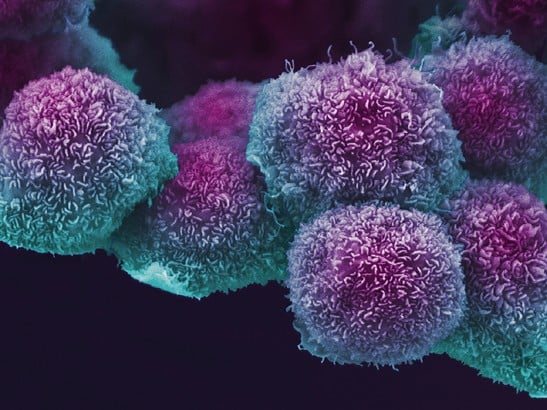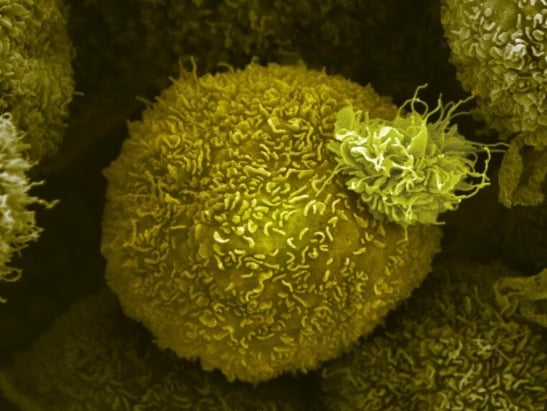Cancer Stem Cell Group
Professor Axel Behrens' group uses a combination of sophisticated genetics and human cancer organoids to understand the biology of cancer and to develop novel therapeutic options, with an emphasis on breast cancer and pancreatic cancer.
Research, projects and publications in this group
We have made significant contributions to cancer cell biology in the last few years, including developing a 3D imaging technology termed FLASH, which opened a novel field of experimental 3D tumour imaging. We will use FLASH in various aspects of our future work.
Professor Axel Behrens
Group Leader:
Cancer Stem Cell
Professor Axel Behrens is a well-known international expert in cancer stem cell biology as well as a pioneer in forging partnerships between scientists from different disciplines. He leads the Cancer Stem Cell Group at the ICR in parallel with heading up the Cancer Research UK Convergence Science Centre, a major strategic collaboration between the ICR and Imperial College London.
Researchers in this group
Professor Axel Behrens's group have written 87 publications
Most recent new publication 7/2024
See all their publicationsIt has become clear that tumours are organised in a cellular hierarchy, with the so-called cancer stem cells (CSC), also called Tumour initiating cells (TICs), being at the apex. It is believed that CSCs mediate tumour growth, precipitate tumour relapse after treatment, and are responsible for metastasis formation. Therefore understanding the molecular mechanisms underlying CSC function may lead to novel therapeutic approaches.
In the last years we made significant contributions to cancer cell biology. We identified a CSC population for luminal breast cancer marked by Lgr6 (Blaas et al., Nature Cell Biology, 2016). Remarkably, Lgr6-posititve CSCs are required to maintain the cellular heterogeneity and malignancy of luminal breast cancer, suggesting that the cellular diversity of luminal breast cancer is generated by CSC, conceptually similar to the function of stem cells in normal organs. In addition, we shed light on the cell of origin and mechanisms of pancreatic adenocarcinoma (PDAC) development (Gruber et al., Gastroenterology, 2016; Ferreira et al. Cell Reports, 2017), and characterised a CD9-positive CSC population in PDAC which is essential for PDAC ontogenesis (Wang et al., Nature Cell Biology, 2019).
Moreover, we developed a 3D imaging technology termed FLASH that provides unprecedented capabilities to visualise large tissues at single cell resolution. FLASH opened a novel field of experimental 3D tumour imaging, and we used FLASH to obtain fundamental insights into pancreatic tumourigenesis (Messal et al., Nature, 2019). Future work will focus on using FLASH to characterise tumour development and relapse, understanding the molecular mechanism underlying CSC function, and to identify CSC vulnerabilities which can be therapeutically exploited.
Recent discoveries from this group

Breakthrough discovery reveals new drug target to stop pancreatic cancer spreading

Professor Axel Behrens elected as Fellow of the Academy of Medical Sciences

Scientists discover mechanism controlling spread of pancreatic cancer

 .
.